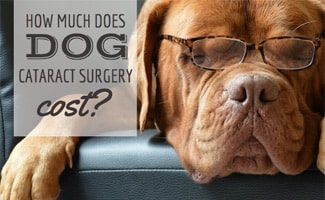The surgeon also assesses how advanced cataract formation is.
Cataract surgery for dogs indiana.
The cost of cataract surgery for dogs averages 2 700 4 000.
She recommends that dogs with mature cataracts undergo cataract surgery to remove them.
The procedure was introduced for use in human patients in 1967 by charles kelman.
Dogs can have cataract surgery but only after careful assessment of the eye by a specialist veterinary ophthalmologist.
The implant is permanent and is customized to fit your visual needs.
This estimate includes the preliminary examination erg and ultrasound surgery anesthesia operating room use hospitalization initial medications and postoperative checkups usually up to 90 days.
By the late 1980s veterinary ophthalmologists considered phacoemulsification the best technique to use to treat cataracts in dogs.
Dog cataract surgery indianapolis canine cataract surgery indianapolis laser cataract surgery indianapolis dog cataract surgery cost dog cataract surgery recovery time.
After the pre operative care is complete cataract surgery is performed by making a very small incision at the side of the eye under high magnification.
Causes most dog cataracts are inherited but they can also be caused by diabetes poor nutrition physical trauma and infection.
The average cost of cataract surgery for dogs is between 1500 and 3000 per eye which covers the cost of the surgery itself plus anesthesia hospitalization and recovery.
Cataract surgery for dogs involves a procedure called phacoemulsification sometimes called phacofragmentation.
Ophthalmology all indyvet specialists have received four or more years of post doctorate training prior to board certification.
Cataract surgery is generally successful in improving vision and is one of the most frequently performed surgeries in the united states.
This will give your dog normal vision after surgery.
The cataract is removed using ultrasound power phacoemulsification.
The specialist runs a number of tests to ensure that the retina is healthy and that removing the lens would restore vision.
This training and experience allows our specialists to manage and treat a wide variety of complex diseases and conditions in collaboration.
Vision loss due to cataracts can often be restored through surgery.
A veterinary ophthalmologist will surgically remove the lens replacing it with a plastic or acrylic lens.
After the cataract is removed a new artificial lens is placed.

